A Peak Behind the Curtain on Travels in Turkiye with Beloved Author Pat Yale
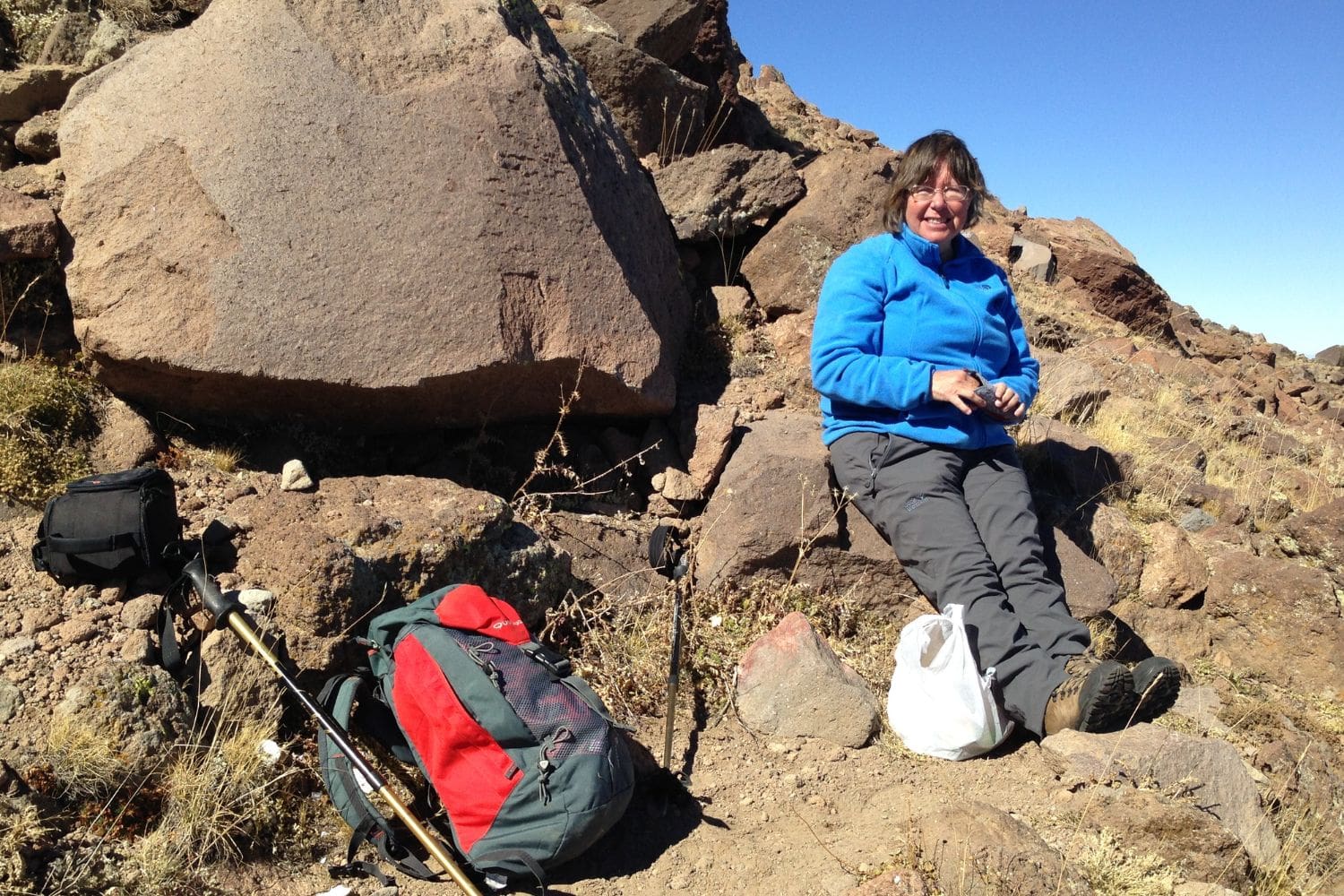
The Art of Living in Turkey contains affiliate links and is a member of the Amazon Services LLC Associates Program. If you make a purchase using one of these Amazon links, I may receive compensation at no extra cost to you. See my Disclaimers for more information.
Welcome to our second installment of Foreign Women of Turkey! I’m excited to introduce you to Pat Yale, veteran travel writer who has been connected to Türkiye since 1974.
After a few initial visits in the 1970s, she started writing guidebooks for Türkiye in the 1990s and for the last 26 years has called this place home.
For 18 of those years, she lived in a cave house in Göreme, a village in the Cappadocia region.
Now a dual citizen and a denizen of Istanbul, Pat has some wonderful insights for anyone who might want to experience this beautiful country.
In this series, we hope you’ll see new possibilities for your own life as you hear the stories of women who have stepped out of their comfort zones and found amazing things on the other side.
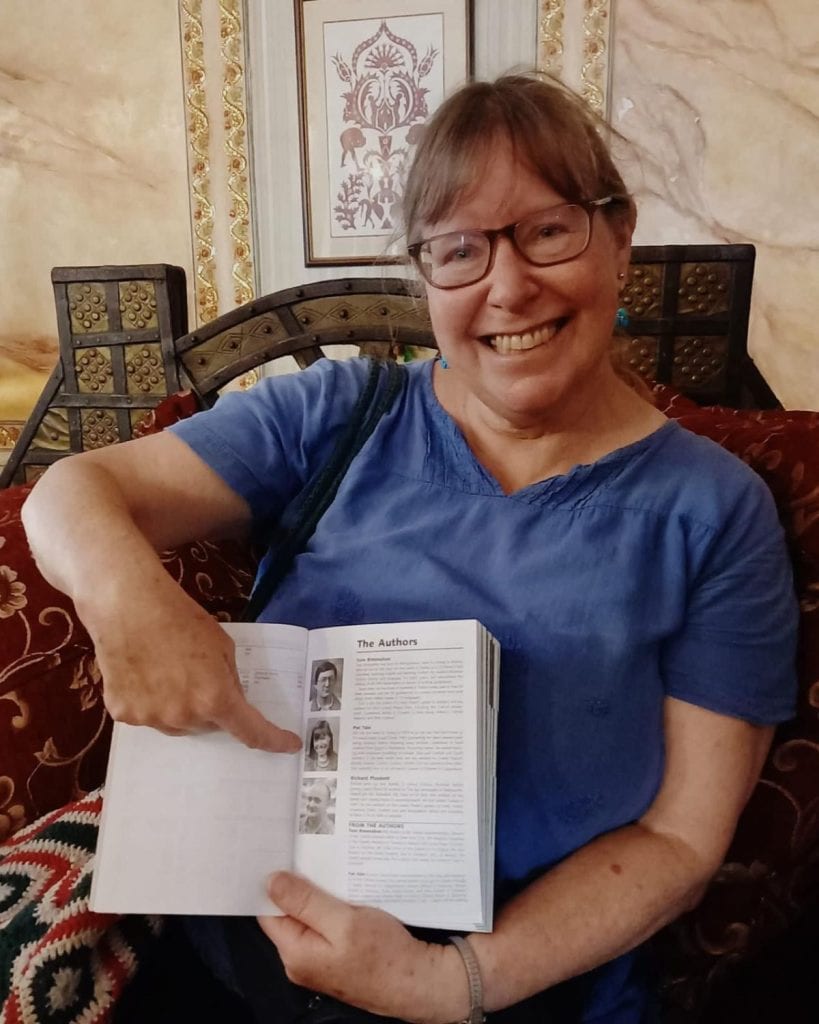
Pat, What originally brought you to Turkey?
Have you ever met your celebrity crush?
Pat is a travel writer from the UK who used to write the Lonely Planet travel guide for Turkey and many other books and essays.
I have personally bought four of her books and use them often.
Pat is the OG (Gen Z-speak for “expert”), whose writing has guided thousands of people in their visits to Turkiye.
As a travel blogger, I’m just following in her footsteps.
When I reached out to interview her, I felt like I was reaching out to a celebrity, who turned out to be happy to talk to me! What a thrill!
I hope you enjoy reading this interview as much as I enjoyed doing it. The interview has been edited for clarity and length.
Pat Yale
Well, I think you would say that I was a tail-end hippie. So I came for the first time in 1974, straight out of school.
During that trip, I stood in the square between the Blue Mosque and the Hagia Sophia and thought that they were the same date because they had a similar profile.
And when I found out later that there were 1000 years between them, I realized that I knew literally nothing, really.
In 1991 I was commissioned to write what became one of the first guide books that I worked on. Then I was coming every couple of years, until in 1998 I just thought I’d like to spend more time in Turkey.
So I thought, I’m going to take a year out, and learn Turkish, and understand the rhythm of an Islamic year as opposed to a Christian year.
And then the assumption was I’d go home. Instead I’m still here 26 years later…
What was your first impression and how did it change over time?
The abiding impression on my first trip here was of the incredible hospitality of the people.
On that first visit [in 1974], there were actually a couple of very unfortunate incidents, but they were balanced by the hospitality and friendliness of the people we met.
I think also I had never heard the call to prayer before.
It affects Westerners in different ways, but for me, it was as if a page turned in a book, and the rest of the world was suddenly alive.
That was what the call to prayer was for me.
It lodged itself incredibly deeply inside me so that when I came back, that overrode any negative things that might have happened.
And how did it change? I mean, of course, everything has changed.
On that first trip we were driving and I can remember several times we actually had to get off the road because there were only roads with one lane in each direction, and there were these ancient lorries [trucks] that would try to overtake but couldn’t.
So if you were coming from the other direction, ultimately you had to get off the road.
I remember a number of instances of going into a field because the alternative was colliding with a lorry that wouldn’t fall back.
When you think of that, and then you think of the incredible highways today, everything has changed in that sense.
What’s one thing you’d like to communicate to others about life here?
People often ask me, “Do you think I would like living here?” And I say to them, it depends.
You have to look at your own personality.
If you’re the sort of person who likes complete order and structure and you want to know how every day is going to go, then this is not going to be the place for you.
But if you’re the sort of person who kind of thrives on a bit of uncertainty, a bit of serendipity, a bit of taking each day as it comes, then I think you will be happy here.
What’s your favorite hidden gem within Turkey?
Well, I’ve got to be absolutely frank with you and say that these days, I’m highly reluctant to ever mention anything that is a hidden gem, because you just know that it will be destroyed immediately.
Obviously, Cappadocia is not a ‘hidden’ gem. But I lived there very happily for 18 years. I assume that people who visit now would still find it absolutely wonderful.
My problem is really that I like so much of Turkey. I mean, I personally like the very Turkish inland towns, places like Amasya, Tokat, and Sivas.
And I have a great love for the South East of Turkey, for the very different towns of Urfa and Diyarbakir and places like that.
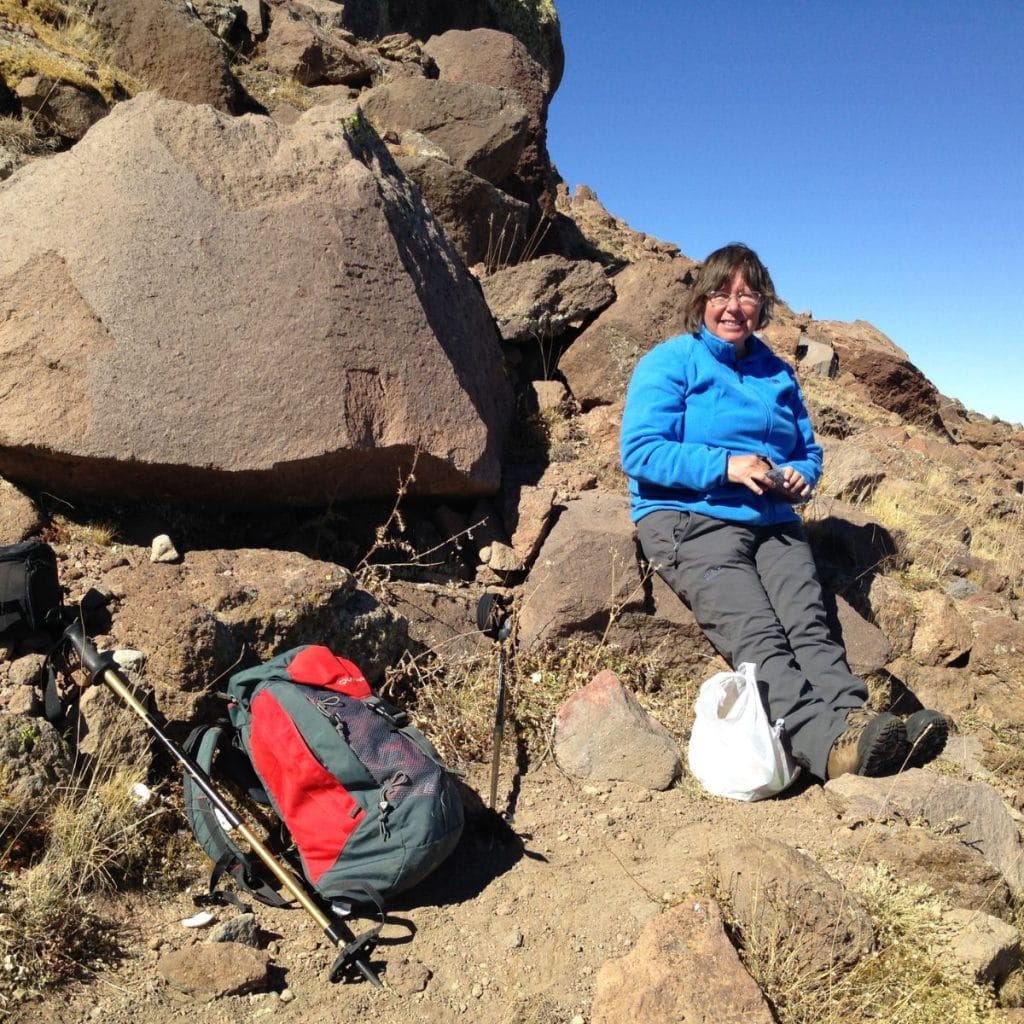
How do you survive the brutal summers?
With great difficulty!
This last summer, I barely ventured out of the house until 5 p.m., when it started to cool down.
What I usually say to myself is, have a project that you going to do over the summer that doesn’t require going out, for example, research or something like that.
Just accept that you’re going to really have to hunker down and stay put.
What is something that would be on your “must-see” list for someone coming to Turkey?
I frankly think most first-time visitors really want to see Topkapi, Hagia Sophia, the Blue Mosque, Kapali Carsi [the Grand Bazaar], possibly one of the museums.
They probably want to see Cappadocia and go to one of the coastal resorts. It’s a very standard trip.
If they’re a second-time visitor, then it’s more interesting.
You can go out to the [Prince’s] Islands. You could go down to Troy and see the new museum. You can go to Bursa. I actually think Bursa is really interesting.
Recently, I was with a guidebook writer friend who was looking at Western Anatolia, and I suggested to her that we go to the ruins of Kibyra.
These are absolutely incredible ruins, but they won’t be in any of the guidebooks because they’ve only been excavated relatively recently. So in Turkey, it is still possible to go to places that really are little known outside Turkey.
The nature of guidebooks has changed so that guidebook writers have less time.
They don’t have the time to go out exploring. They can only check the main things to make sure they’re up to date.
But that doesn’t help the places that are a little bit off the beaten track.
Kibyra should be overrun with people like all the better-known sites, but you’re going to have it to yourself.
How did you learn about the culture?
I went to live in Göreme, in Cappadocia, and stayed there for 18 years in what was, at the time, a living neighborhood.
My primary interest was to befriend the women and be part of the female life there.
I learned the culture from them, from our endless tea sessions together, going from house to house, and just generally, picking up bits and pieces as I went along.
But it does mean that I’ve got a somewhat Anatolian view of culture. Sometimes when I’m in Istanbul, I listen to young Istanbulites talking about cultural things as if they’re dead, as if they don’t exist anymore.
And I think, the culture of Anatolia is still alive in Anatolia.
I can recall going to my first Cappadocian wedding.
We had our fingers henna’ed and then I came up to Istanbul shortly afterwards. Seeing people staring at my fingers, I realized that actually, in middle-class Turkey, things like this don’t happen anymore.
I would say that when people come to the tourist areas, it’s quite easy to walk away with the idea that Turkish culture is not that different from Western culture.
But I think the longer that you are here, the more different it seems. You come to understand the differences and the little details of life more.
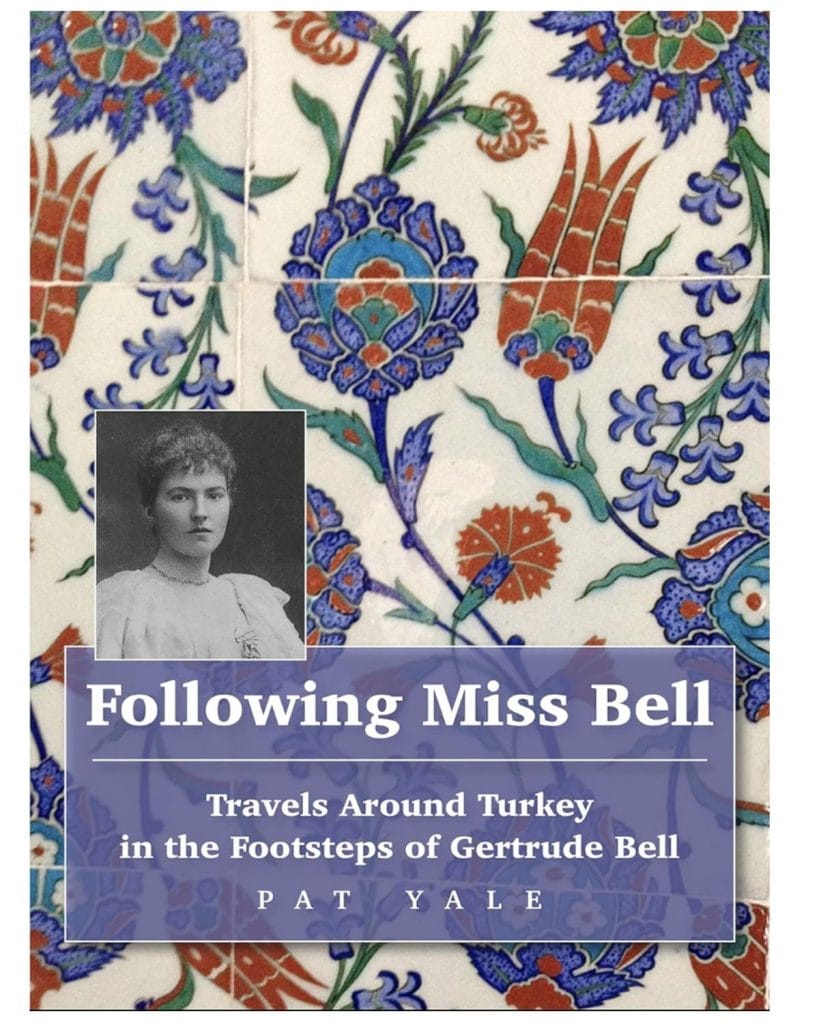
What got you into Writing About Turkey?
I was a travel writer in the UK, and then I was invited to ghostwrite a book about Turkey in the first phase of ecotourism. It was called The Good Tourist in Turkey.
And so having done that, I was invited by the Lonely Planet author to work with him. We worked together for several editions and then I continued on.
I was lucky enough to have the chance to visit pretty much everywhere in Turkey. I had extraordinary experiences while doing the book, and got to meet fantastic people and see such wonderful places.
Now I’m trying to move on into narrative travel writing, and the first book that I’ve had published along those lines is Following Miss Bell: Travels Around Turkey in the Footsteps of Gertrude Bell.
Do you miss home? If so what about it?
The short answer is, no.
I miss my friends. I have some very close friends who I love dearly, and I do miss them. I have a wonderful time when I visit them.
But no, I don’t really miss the UK. I always feel that actually I was born in the wrong place, that I should have been born in Turkey.
I find it easier to feel rooted and happy and enjoy my life here than I did in the UK.
What is one thing you wish you knew before moving here?
I wish I’d known that I was going to spend my life here because then I would have started learning Turkish immediately.
If I had started in 1974, I would have spoken fluent, beautiful Turkish, and I’d have been able to read it fluently. But I started at age 45, and by then, your brain doesn’t absorb language in the same way.
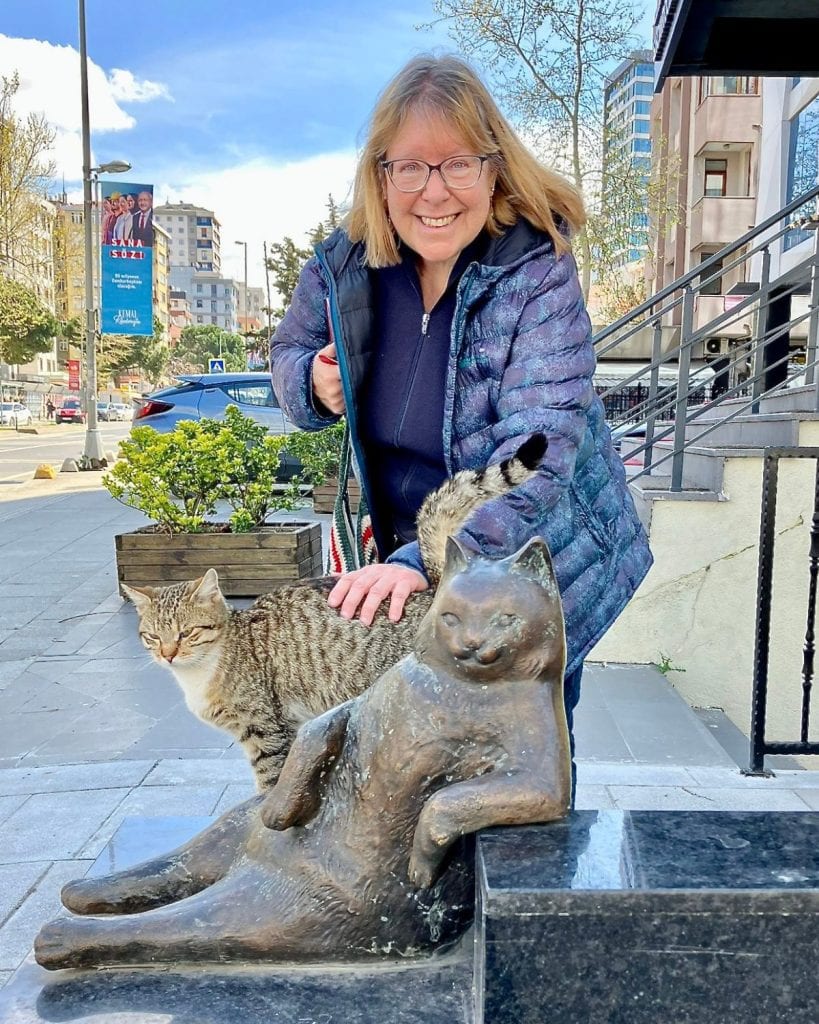
How has the different system here made it easier or harder to do what you wanted to?
I think for all writers, the problem with Turkey is that you constantly have in the back of your mind the subjects that are very controversial to talk openly and freely about. So a number of red flag issues.
But in many other ways, it is easier to be a writer here because Turkish people are open. Of course that’s a gross generalization, but they are more open than British people, and they are usually quite happy to chat.
For example, when I was researching Following Miss Bell, I received incredible helpfulness from people.
One time I rocked up to a lawyer in his office and asked, “I want to know this, do you know where this is?” And he just said, “We’ll close the office now and go off and find it.”
I said “What if someone wants some legal advice?,” and he said “Boş ver [don’t worry about it]!”
In the UK you would probably have to make that appointment six months in advance. And send them a list of what you wanted to know and all the rest of it.
So you have to kind of balance the two things, really.
If you could tell someone who wanted to visit Turkey one thing what would it be?
I would say that Turkey’s an incredibly hospitable, friendly place.
However, I would balance that with saying that people who work in tourism can use that hospitality to lure you into their carpet shop, etc.
So I’ve often had to balance that you need to be careful that you don’t let yourself be sucked into something you don’t want to be part of, while also managing somehow to be open so that you go along with opportunities that present themselves.
The things that present themselves unexpectedly are often the most interesting things and the ones that you’ll remember later.
If you manage to find someone who is genuinely just being nice and helpful, then you will have a very memorable experience.
If you could tell someone who wanted to move to Turkey one thing what would it be?
Recent events have completely altered what I would have said even one or two years ago, because it has actually got considerably harder for someone who wants to move here in the last year.
Prices have risen to levels not that different probably from where someone might be moving from.
But also the rules on getting a residency permit have changed, and it is now considerably harder to get residence for more than six months.
My main message is that you need very up-to-date information because if you read something that has been written about moving to Turkey in the past, it’s likely to be a very different situation from the current one.
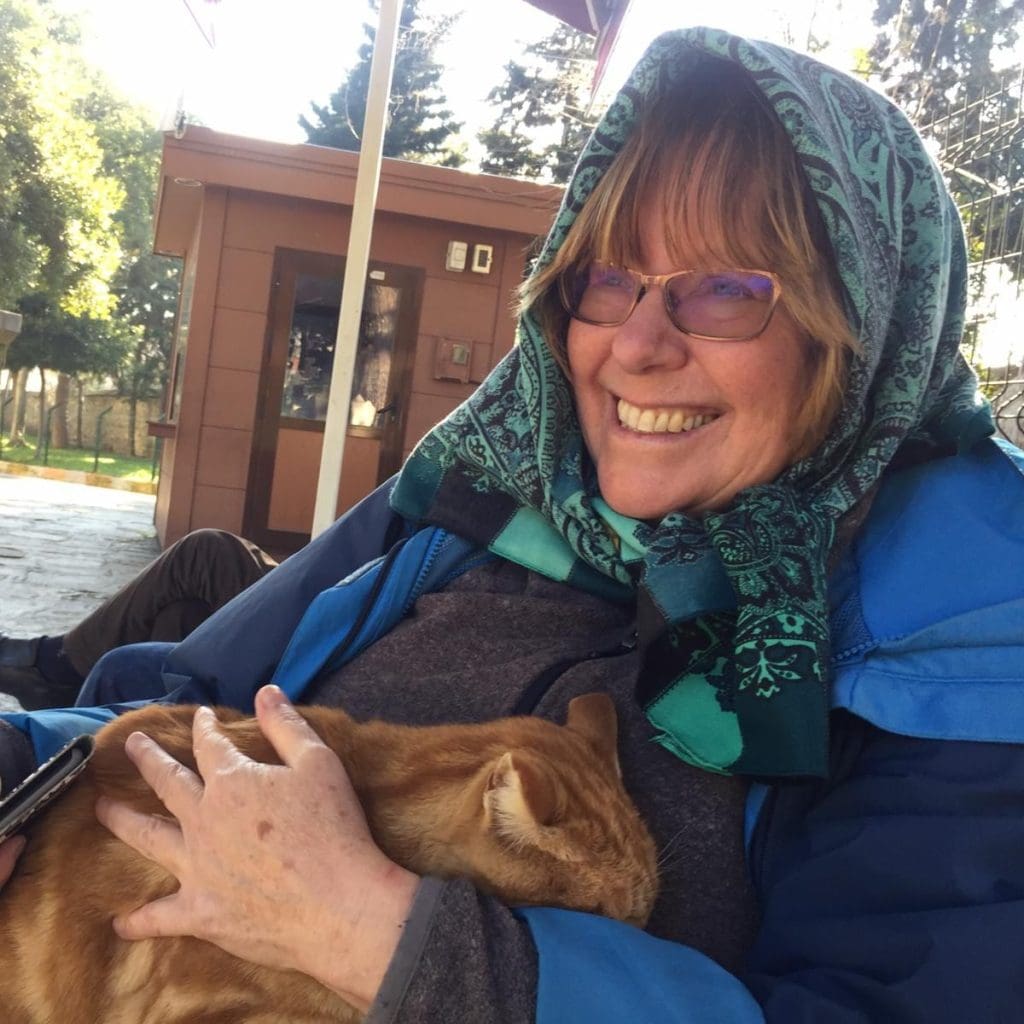
How can people get in touch with you?
You can find me on X (Twitter) at @patyale.
I hope you learned something new about Turkiye from this interview with Pat. I certainly did!
What did you enjoy most? Did her stories give you some inspiration to explore a new place?
Read more:
- Life in Istanbul with Lisa Morrow
- Public Transportation in Istanbul
- Make sure your bag is packed correctly when you come
Turkey Vacation Basics
When I plan a trip these are the websites I use. I hope they help you plan your next adventure as well!
FLIGHTS: I am a huge fan of Skyscanner and WayAway.
VISAS: You can use the free e-visa portal here but for a few extra dollars you can use iVisa and someone else will handle any issues that may come up.
E-SIM: When I traveled to SE Asia I discovered e-sims and I’m never going back. Airalo has been easy and cheap!
TRAVEL INSURANCE: I use TravelInsurance.com for my trips abroad.
CAR RENTAL: I have loved working with Discover Cars when I rent cars in country.
AIRPORT TRANSFERS: I have used these transfers many times and they are always great. If you’d like more options, I also recommend GetTransfers.com as they allow you to compare companies.
ACCOMMODATION: Find the best Turkey hotel deals on Booking.com.
CITY TOURS & DAY TRIPS: You can browse GetYourGuide’s website to find just the tour you’re looking for! We also recommend the MegaPass for major cities.
